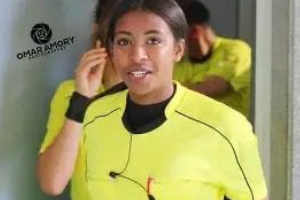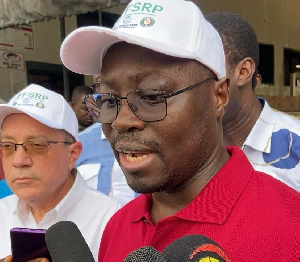By Alhaji Alhasan Abdulai
In order to ensure greater efficiency and strategic management of education in Ghana, three bodies were established under the Education act of 2008. One of the bodies is National Council for Curriculum and Assessment (NCCA) which is responsible for handling the process of determining the goals, aims and structure of courses at the various levels of pre-tertiary education. The body has a Council which has four year tenure and is managed with the backing of a secretariat.
With the expiry of the last council a new 21 member council drawn from various organizations has been inaugurated by the Minister of Education Professor Jane Naana Opoku-Agyemang on behalf of His Excellency The President John Dramani Mahama.
The role of the National Council for Curriculum and Assessment is to lead developments in curriculum and assessment and to support the implementation of changes resulting from its work. The NCCA works in a spirit of consensus and partnership and seeks to promote an innovative and creative environment for all learners in schools and other educational settings.
The Council is a representative structure, the membership of consists of institutional representatives who are nominated by the respective institutions and confirmed by the Hon. Minister of Education and validated by HE the President.
The current NCCA council is Chaired by Professor J. Anamuah Mensah, an educationist with Mr. Charles Y. Aheto-Tsegah as Executive Secretary
At the inaugural ceremony of the new Council, the Hon. Minister indicated that the President attaches importance to the Council hence the approval he gave to its members. The minister required the Council to be a driving force for sustaining quality education at the pre-tertiary level which is a key stage in the academic experiences of young learners. The Minister pointed out that since coming into office the government has been committed to improving the quality of education and how it is delivered. To this end a number of ‘people friendly policies’ have been introduced leading to increase to access to education as well as tackling some of the endemic challenges to education development. She emphasized that under the new membership, “the council will be expected to rebrand education at the pre-tertiary level in order to raise confidence in the education system”.
The Hon. Minister directed that “an immediate action that the council will be required to take is a general assessment of the curriculum at the pre tertiary level with a view to reviewing the syllabus of the various subjects”. She emphasized that the areas of particular interest are the syllabuses for the teaching of languages, mathematics, science and general reading literacy.
“In pursuit of these she said the council will be expected to as soon as possible, review the criteria for the appointment of members of syllabus panels and assess the process for selecting teaching and learning materials for the basic level and secondary levels”. The minister said
She expressed the belief that the council is appropriately composed with individuals who, she hopes, will see the bigger picture of developing education and by extension the future of the country. She called on the council to endeavor to deliver on its mandate and go ahead to show evidence with improvement in learning outcomes for all types of learners at the pre tertiary level of education in Ghana.
Other duties of the council are
• to ensure an inclusive and representative curriculum development process and guide curriculum development in a timely and an effective manner
• To recommend a number of core and elective subjects
• To recommend new subjects as the subjects become necessary for the educational system
• To review periodically and make recommendations on the linkages between tertiary and pre tertiary education after consultations with the minister, the national council for tertiary education, the national accreditation board, and any other organizations or agency
• To approve the time table arrangement for the relevant educational institutions
• To receive reports on the quality and quantities of text books and any other materials of educational value and make the appropriate recommendations to the minister
• To recommend to the minister the periods and time duration for the curriculum reviews and sample size for trial testing of various subjects in pre-tertiary education
• To review the criteria and conditions for the appointment of members of syllabus panels
• To receive reports on monitoring assessments, school based assessment and end of course examination ,and make recommendations on the nature of examinations and any other recommendations for improving learning in educational institutions
• To receive reports on school inspections, half yearly and make the necessary recommendations to the education service for improvement of the various sections of the education system
• To consider any other matter assigned to it by the minister for improving the quality of teaching and learning in educational institutions
Executive Director
EANFOWORLD FOR SUSTAINABLE DEVELOPMENT
P.O.BOX 17070AN 233244370345/23326370345/ 233208844791
abdulai.alhasan@gmail.com /eanfoworld@yahoo.com
Opinions of Thursday, 15 October 2015
Columnist: Abdulai, Alhaji Alhasan














